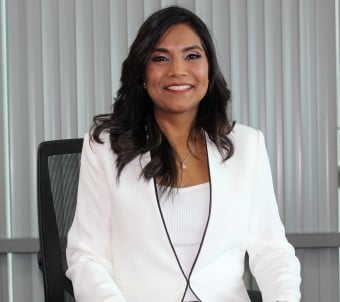(Trinidad Guardian) The UK Privy Council has dismissed an appeal regarding Auditor General Jaiwantie Ramdass’s right to pursue a lawsuit over a Cabinet-appointed probe into the misrepresentation of revenue in the national accounts.
Five Law Lords of the Privy Council dismissed the appeal brought by Finance Minister Colm Imbert and the Cabinet after hearing submissions from the State’s attorneys at the UK Supreme Court in London.
The Board did not require submissions from Ramdass’ lawyers, led by Senior Counsel Anand Ramlogan, to make its oral decision. The judges promised to deliver a written ruling at a later date.
As a result, Ramdass’ case can now proceed to trial.
Although the probe continued during the appeal, the investigative committee, led by retired judge David Harris, agreed to pause all matters relating to Ramdass and her office until her legal challenge is resolved.
In the final appeal, Imbert and the Cabinet’s legal team, led by Douglas Mendes, SC, argued that the Court of Appeal had erred in granting Ramdass leave to pursue the case in June.
Earlier that month, Justice Westmin James had refused leave, ruling that Section 116(6) of the Constitution, which insulates the Auditor General from external direction or control, did not apply to investigations such as the Cabinet-ordered probe. He also stated that Ramdass had failed to prove bias on the part of Imbert, noting that Imbert and his ministry were also under investigation.
Justice Peter Rajkumar, who reviewed Justice James’ decision in the Appeal Court, stated that the threshold for granting leave in such cases is low. “Leave will therefore be granted because as a matter of law the low arguability threshold has been attained,” he said, as he and his colleagues remitted the case to be reconsidered by another High Court judge.
The dispute between Ramdass and the ministry began in April after the ministry sought to submit amended public accounts to explain a reported $2.6 billion underestimation of revenue.
Ramdass initially refused to accept the records, claiming she needed legal advice on whether she could accept them after the statutory deadline in January. She later accepted the records and sent audit staff to verify them.
Ramdass then submitted her original annual report to Parliament, based on the original records.
In subsequent legal correspondence, Ramdass claimed her audit team could not reconcile the amended records with the documents they had audited. She also contended that the amended records appeared to have been backdated to the original statutory deadline in January.
Ramdass also raised concerns that the discrepancy was initially estimated at $3.4 billion.
Imbert repeatedly denied any wrongdoing.
His lawyers argued that after reconciliation, the variance was $2,599,278,188.72, mainly attributed to Value Added Tax (VAT), Individual, Business Levy, and Green Fund Levy contributions. They also claimed that the approximate $780 million difference between the initial and final estimated variances stemmed from tax refund cheques issued for the 2022 financial year and cashed in 2023.
They attributed the error to a shift from a manual to an electronic cheque-clearing system by the Central Bank.
They denied any backdating, explaining that a document related to the original public accounts was mistakenly included in the revised documents.
They also contended that Ramdass had acted illegally by initially refusing to accept the amended accounts, though they decided not to take legal action against her for this.
Imbert eventually agreed to lay the original report before Parliament on May 24, understanding that Ramdass would issue a special report based on the amended records.
Ramdass later submitted the special report, maintaining similar concerns as those in her initial report.
In presenting the special report to Parliament, Imbert opposed comments made by Ramdass in an affidavit, in which she claimed that her ability to conduct a proper audit was hampered when the Central Bank allegedly blocked her from accessing its electronic cheque-clearing system.
Ramdass also has a separate, pending case concerning her right to seek independent legal advice and representation regarding these events.






